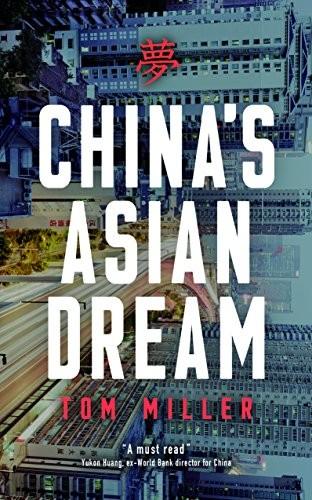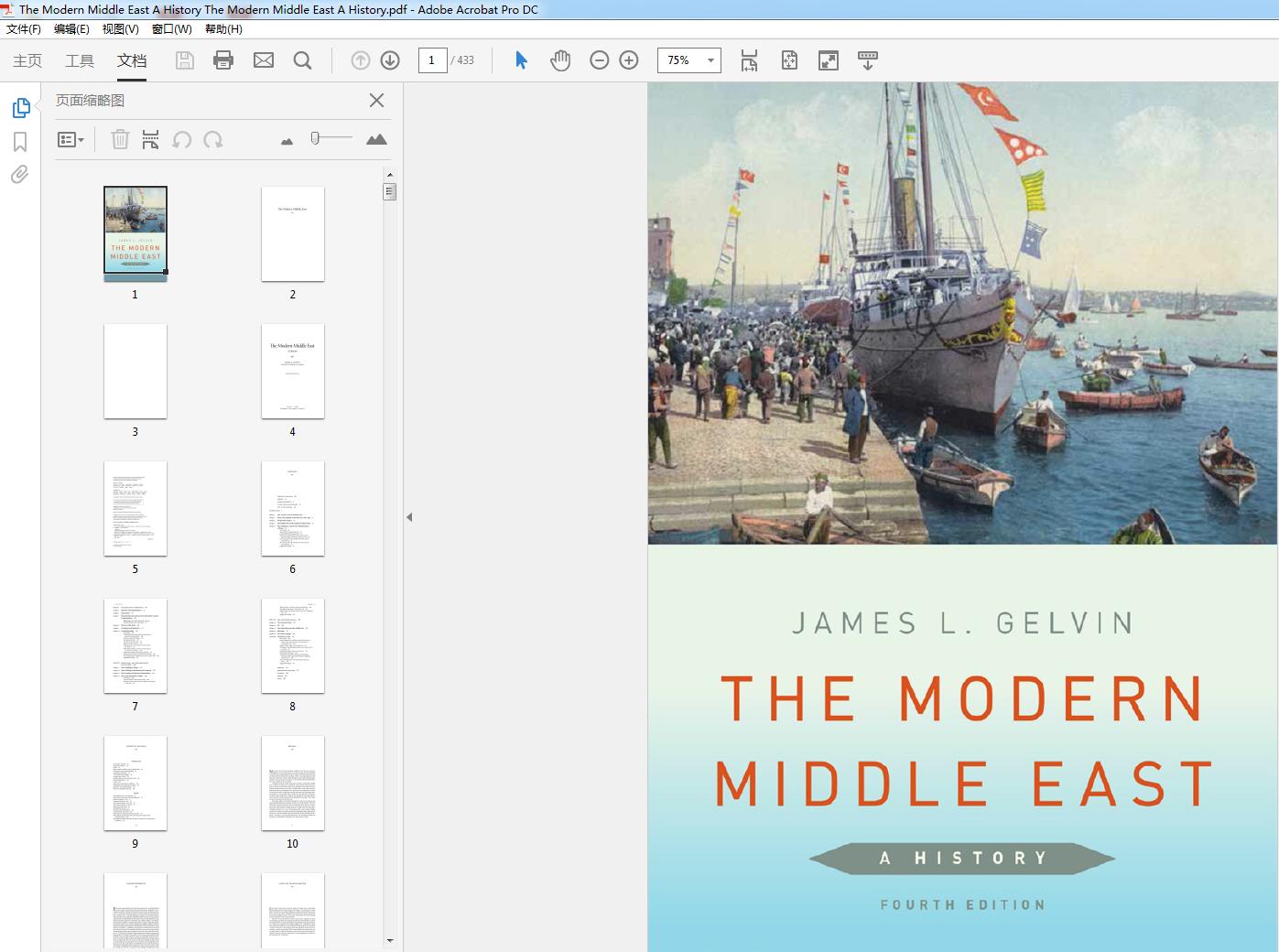ChinaandtheMiddleEast
TherearecurrentlyfewsourcesofreferencefromaMiddleEasternstandpointonthe rolethatthePeople’sRepublicofChinaiscurrentlyplayingintheMiddleEastand NorthAfricaregion.Inthisbook,DrMuhamadOlimataimstoanalysedifferent perspectivesinordertodeepentheunderstandingofscholarsandstrategicplanners alike,inordertoofferacompleteeconomicandpoliticaloverviewofthesituation. ChinaandMiddleEasternrelationsdatebackfromtheSilkRoadandstretchtothe current ‘ArabSpring’.China’srelationswiththeMiddleEastarehighlightedinterms ofenergy,trade,armssales,cultureandpoliticaltieswithkeycountriesintheregion: SaudiArabia,Iran,Israel,AlgeriaandtheUnitedArabEmirates.China’sbilateral relationswitheachofthesecountriesarebasedonaparticularlycriticalaspectthat determinesitsinterestintheregion.ThecoreofChina’srelationswithIsrael,for instance,isweaponssalesandadvancedtechnology,whilerelationswithSaudiArabia arebasedonoil.IranandChinaaretiedwithdeephistorical,civilizational,cultural andpoliticalbonds,althoughoilisalsotheprimaryfocusofChina’scurrentinterest inIran.China’snationalinterestsinandrelationsandstrategicpartnershipswiththe MiddleEastareonlyincreasing;thisbookaimstoanalyzeandinterprettheserelationsinthistimeofmajorchangeintheMiddleEast.
Thebookincludesdiscussionofandcommenton:
China’sdeepinvolvementintheMiddleEastsincetheSilkRoad
ThenewSilkRoadoftrade,oil,armssales,politicalandculturalrelations
China’soilinvestmentsintheMiddleEast
China’sreactiontotheArabSpring
MuhamadS.Olimat,isanAssistantProfessorofinternationalrelationsatKhalifa UniversityofScience,TechnologyandResearch(KUSTAR)inAbuDhabi,United ArabEmirates.PriortojoiningKUSTAR,DrOlimattaughtandconductedresearch attheUniversityofSouthFloridainStPetersburg,MissouriStateUniversityand severalotherUShighereducationalinstitutions.HisareaofexpertiseisMiddleEast politics,andhisresearchfocusesonChinaandtheMiddleEast,socio-politicaland economicdevelopmentintheMiddleEast,andUSforeignpolicytowardstheregion. HehaspublishedseveralarticlesandbookchaptersonChinaandtheMiddleEast, theArabSpring,transitiontodemocracy,womenandpoliticsintheMiddleEast,and theroleofIslaminthepoliticsoftheMiddleEast.
Firsteditionpublished2013 byRoutledge
2ParkSquare,MiltonPark,Abingdon,OxonOX144RN
SimultaneouslypublishedintheUSAandCanada byRoutledge
711ThirdAvenue,NewYork,NY10017
RoutledgeisanimprintoftheTaylor&FrancisGroup,aninformabusiness ©2013MuhamadS.Olimat
TherightofMuhamadS.Olimattobeidentifiedaseditorofthisworkhas beenassertedbyhiminaccordancewiththeCopyright,Designsand PatentsAct1988.
Allrightsreserved.Nopartofthisbookmaybereprintedorreproducedor utilisedinanyformorbyanyelectronic,mechanical,orothermeans,now knownorhereafterinvented,includingphotocopyingandrecording,orin anyinformationstorageorretrievalsystem,withoutpermissioninwriting fromthepublishers.
Trademarknotice: Productorcorporatenamesmaybetrademarksor registeredtrademarks,andareusedonlyforidentificationandexplanation withoutintenttoinfringe.
BritishLibraryCataloguinginPublicationData
AcataloguerecordforthisbookisavailablefromtheBritishLibrary LibraryofCongressCataloginginPublicationData Olimat,Muhamad.
ChinaandtheMiddleEast:fromSilkRoadtoArabSpring/Muhamad Olimat. – Firstedition. pagescm
Includesbibliographicalreferencesandindex.
1.China–Foreigneconomicrelations–MiddleEast.2.MiddleEast–Foreigneconomicrelations–China.3.SilkRoad.4.ArabSpring,2010-I. Title.
HF1604.Z4M6282012
382.0951'056–dc23
ISBN:978-1-85743-631-0(hbk)
2012028085
ISBN:978-0-203-07312-4(ebk)
TypesetinTimesNewRoman byTaylor&FrancisBooks
EuropaCommissioningEditor:CathyHartley
Inlovingmemoryofmyparents,SalemandEda Tomychildren,JennahandKasum
4.2NumberofprisonersoftheSyrianRevolutionfromMarch2011 to5July2012 93
5.1NationalsharesofarmssalesfortheSIPRItop100armsproducingcompaniesin2008and2009,indollars(000million)118
5.2China–Israel:valueofbilateraltradeinUSdollars(000million)122
6.1Saudi–Chinesevolumeoftradeinmillionsofdollarsfrom2001 to2010 144
6.2SaudiArabia’smilitaryexpendituresfrom2001to2010in dollars(000million) 146
6.3Regionalarmstransferagreements,bysupplier,2003–10in millionsofcurrentUSdollars 147
7.1IranianarmsimportsfromChinainmillionsofdollarsfrom 1987to2011 155
7.2Bilateraltraderelationsinmillionsofdollarsfortheperiod from2001to2010 160
8.1ValueofbilateraltradebetweenChinaandtheUAEinmillions ofdollars 165
8.2Bilateraltradeinmillionsofdollarsfortheyears2008–10165
8.3Armstransferagreementswithdevelopingnations,2003–10: agreementsbytheleadingrecipientsincurrentUSdollars (000million) 171
8.4UAE’smilitaryspendingandarmamentsfrom2001to2011in millionsofcurrentUSdollars 172
9.1Algeria’srealGDPandunemploymentrates 177
9.2Sino–Algerianbilateraltradeinmillionsofdollarsforthe periodfrom2000to2010 182
9.3Algeria’smilitaryexpenditureinconstantUSmillionsofdollars for2001–10 188
Introduction
TheaimofthisbookistoprovideadistinctiveperspectiveonChina’sMiddle Easternrelations.MyinterestinthetopicofChineseStudies,andsubsequentlyinSino–MiddleEasternrelations,waspromptedbymyassociation withChineseStudiesatMissouriStateUniversitywhereItaughtfortwo years,2005–07,andwhereIbecameamemberoftheAssociationofChinese PoliticalStudies(ACPS).Myfriendsandcolleaguesattheassociation,particularlyGregMooreandDennisHickey,encouragedmetoresearchSino–MiddleEasternrelations,giventhegrowinginterestinthetopic.Sincethen,I havebeenstudying,collectingmaterialandinteractingwithChineseand otherscholarsonChineseStudies.Theideaofexpandingmyresearchintoa manuscriptcamefrompreviouscollaborationontwobookchaptersandan article,onewithDennisHickeyandBaogangGuo’sbook Dancingwiththe Dragon,publishedbyLexingtonin2010,anotherchapterwithShaunBreslin inhisbook HandbookofChina’sInternationalRelations publishedbyRoutledgein2010,inadditiontoanarticlepublishedinthe JournalofChinese PoliticalScience in2009entitledthePoliticalEconomyofSino–Middle EasternRelations.
Duringmyresearch,Inoticedashortageofmanuscripts,whichcertainly doesnotreflectChina’sheavyinvolvementintheMiddleEastandNorth Africa.Thegoalofthisbookisto fillthatvoid,andtocontributetothe ongoingdebateonSino–MiddleEasternrelationsinthehopeofmotivating futureresearchinthe field.TograspthedepthofChina’srelationswithinthe region,intheoverviewchapterIwentbacktotheSilkRoadperiodtohighlightmajoreventsthatcharacterizedtheconnectionbetweenthetworegions uptothecurrentArabSpring.Iwasstruckbythecenturies-longrelationship thattiedChinatotheMiddleEast.TheSilkRoadopeneduptimelessroutes oftradeandculturalinteraction;someofitsremnantsarestillpresentin modern-dayChina,CentralAsia,Iran,Iraq,SyriaandTurkey. IslamrevolutionizedthelinksbetweenChinaandtheMiddleEast. AlthoughearlyIslamwascharacterizedbyconquest,Chinawassparedthe Islamicincursiontwice.Islamic–Chineserelationswerepredominantlycharacterizedbypeacefulandcivilco-existence,withoneexception:theTalas RiverBattlein751,inwhatiscurrentlyKyrgyzstan.TheMuslimarmy
emergedtriumphantbutchosenottopursueanall-outconquestofChina, preferringtraderelationsandpeace.TheAbbasids,anenlightenedcivilization ledbyopen-mindedcaliphs,emphasizedmodernadministration,science, craftsmanship,agriculture,irrigationsystems,watercanalsandhighways,and developedanefficientpostalserviceinahugeempire.Theyweregreatly interestedinChina’sknowledgeofastronomyandagriculture,andfascinated byitscultureinparticular.Thereforetrade,culturalcontactsandthe exchangeofknowledgeweresourcesofmajorinteractionbetweenthetwo sides.
TheTangdynastywasalsoanenlightened,multiculturalcivilizationthat promotedsimilarvaluesoftraderelationsandculturalandscientificinteractionwiththeIslamicEmpireandotherneighbouringcivilizations.During China’syearsofturbulence,Muslimarmiescametoitsassistancetomaintain itsterritorialintegrityandunity.MuslimmerchantsandwarriorsfromPersia, ArabiaandCentralAsiawhoresidedinChinacametobeknownasHui,a referencetotheirMuslimreligiousaffiliation.Althoughtheylivedsidebyside withtheHanmajority,HuiMuslimspreservedtheirculturaldistinctiveness, buthavebeensubjectedtosomemajorepisodesofviolenceeversincethe ninthcentury.Sino–MiddleEasterncontactsweakenedbetweenthesixteenth andmid-twentiethcenturiesasboththeIslamicandtheChinesecivilizations declined.However,sinceWWII,China’sengagementwiththeMiddleEast hasintensi fiedtotheextentthatChinahasbecomeanintegralpartofMiddle Easterninternationalrelations.Currently,ChinaisheavilyinvolvedinMiddle EasternpoliticsdealingwithmajorissuessuchastheArabSpringandits subsequentrevolutions,theIraniannuclearstandoff andtheArab–Israeli conflict.
Bookorganization
ThisbookisdividedintoninechapterscoveringSino–MiddleEasternrelationsfromtheSilkRoadtotheArabSpring.The firstfourchaptersdiscuss Sino-multilateralrelationswiththeMiddleEastregion,whiletheremaining fivechaptersdealwithbilateralrelationswithkeyMiddleEasterncountries, eachofwhichischosenforstrategicelementsinitsbilateralrelationswith China.
InChapter1,IprovideanoverviewofSino–MiddleEasternrelations highlightingthemostsignificanteventsthathaveoccurredbetweenChina andtheMiddleEastfromtheemergenceoftheSilkRoadtothecurrentArab Spring.InChapter2,Ihavedevelopeda five-dimensionalapproachor five pillars:China’srelationswiththeregionareexaminedbylookingatenergy, armssales,trade,politicalco-operationandculturalties.Infact,inorderfor Chinatomaintainitscurrentgrowthratesandindustrialmomentum,the essenceofitsinvolvementintheMiddleEasthastodealwithitsquestfor energysecuritydefinedintermsofsecuringaccesstoMiddleEasternoil resources.China’sbilateraltraderelationswiththeregionarealsogrowing
andforgingstrategictradepartnerships.Chinaisheavilyinvolvedinpolitical developments,especiallywithintheparadigmoftheArabSpringintermsof itspolitics,repercussions,constraintsandopportunities.Chinaisanexporter ofarmsandamajorimporterofweaponsfromtheMiddleEast.ItspartnershipwithIsraelisbuiltondefenceco-operation,importinghigh-tech weaponryandexportinglightandmediumtypesofarmstotheregion.Chinese–MiddleEasternculturalrelationsarecharacterizedbyculturaleventssuchas festivals,NewYearcelebrations,educationalopportunitiesandcuisine.
Chapter3offersatridimensionalapproachtoSino–MiddleEasternrelationsviewedasanoutcomeofinteractionbetweenthreeactorsineachscenario.China’ seffortstomaintainitsinterestshaveprovedtobechallenging, especiallywhendealingwithcontendingregionalpowerhousesintheMiddle East.Thechapterdescribesscenariosandelementsthatbalance,forexample, China’srelationswithIranandSaudiArabia,tworivalsintheregion.Similarly,Chinahasbeensuccessfulindevelopingastrategicpartnershipwith IsraelwhilemaintainingitstraditionalsupportofthePalestinianpeople. Chapter4presentsananalysisofChina’sreactiontotheArabSpringandthe currentrevolutionsthatshaketheMiddleEast.Chinahasbeenstunnedas muchastheUnitedStates,FranceorBritainbytheeventsoccurringinthe region.ChinawasactingontheassumptionthatMiddleEasternauthoritarianregimeswere ‘changeproof,’ anassumptionthatprovedtobeinaccurate. Therefore,itsreactionsofarhasbeencharacterizedbyinconsistencyand confusionattimes,andproblematicandretroactivestatementsatothertimes. China’sleadershipcloselyfollowedtheeventsthatledtothedemiseofthe MubarakregimeinEgyptin2011.Tosomeextent,theswiftchangesin TunisiawerereassuringtoChinaandothercountriesconcernedaboutstabilityinpost-revolutionarysituationsintheMiddleEast.However,theLibyan, SyrianandYemenicaseswerecharacterizedbywidespreadviolence.China supportedinternationaleffortsattheUNSecurityCounciltopressure Gadhafi tohalttheviolence,butcontinuedtoshiparmstohisregimeuntil the finalstagesoftheconflictin2011.Chinasupportedthetransitionin Yemen,buthasvehementlyopposedanyinternationalmilitaryinterventionin Syriatostopthegenocidecurrentlyoccurringinthecountry.InclosecoordinationwithRussia,Chinaexercisedadoubleandunprecedentedvetoon 4February2012thatprolongedtheviolenceinSyria.Forthat,Chinaand RussiaearnedthedispleasureofArabpublicopinion.Forthe firsttime, ChineseandRussian flagswereburnttosubstituteforthetraditionalburning ofIsraeliandAmerican flags.Thechapteralsooffersanin-depthanalysis thatprovidesscenariostodiscernChina’sjusti ficationforitsstrongdefenceof theSyrianregime.Infact,SyriaservesasacasestudyforChina’sviewson theArabSpring.
Chapters5to9aredevotedtocasestudies.Chapter5dealswithSino–Israelirelations;themainthemeisChina’srenownedmilitarypartnership withIsraelthatstandsatoddsnotonlywithChina’straditionalallies,the Arabworld,butalsowithIsrael’smainsupporter,theUnitedStates.Israel
andafterWWII.AlthoughtheUSisnotexpectedtosuddenlyleavethe MiddleEast,itisshiftingsomeofitsattentiontoSouth-EastAsiaandthe FarEast,aimingatreducingsomeofitssecuritycommitmentsintheMiddle East.Yet,itishardtoimaginethattheUSwouldcompletelyabandonits enduringcommitmentsintheMiddleEastsuchasdefendingIsrael’ssecurity, thesecurityofitsfriendsandalliesintheGulfregion,anditsrelianceon MiddleEastenergyresources.
AlthoughthereiscurrentlysomeresentmenttowardsChina’spoliciesover theArabSpring,thepeopleandgovernmentsoftheMiddleEastareeager forChina’sgreaterinvolvementinthepoliticsoftheregion.However,this maybeadesiretheywillregretinthefuture.USinvolvementintheregion wassolicitedintheMiddleEastasearlyas1916,postWWI,butresented postWWII.Chinamight finditselfinthesamesituation.ItsgrowingpresenceintheMiddleEastshouldattractscholars’ attentiontoChinese–Middle Easternstudies.This fieldwillcertainlydevelopalongthelinesofAmerican–MiddleEasternrelationspostWWII.Itismyhopethatthisbookwillcontributeinparttoitsfurtheranceandtocontinuedin-depthstudy.
Sino–Islamicrelations
TheadventofIslamontheArabianscenemarkedanewphaseintherelationshipbetweenChinaandtheMiddleEast.ProphetMuhammadoncesaid, ‘Seekknowledge,evenifit’sinChina’ withreferencetotheimportanceof seekingknowledgedespitethegeographicaldistance,andinreferencetoChina asasourceofenlightenmentandwisdom.RealizingChina’sstrategicimportance,hisfollowerstookdrasticstepstoestablishsoliddiplomaticandeconomic relationswithChineseemperorsandpeople.Intheseventhcentury,theswift triumphofIslambroughtthereligiontothebordersofChinainrecordtime, andattimesintoitsheartland.Infact,aconsiderablenumberofMuslims weretobefoundin ‘ChineseTurkistanabout AD 630’,thatisduringthelifetime oftheProphet(570–632).1 Clearly,IslamreachedChinabeforeitreached somepartsofArabiaandNorthAfricapreciselythroughMuslimmerchants ontheSilkRoad.TheArabconquestofthePersianEmpirespeededupthe arrivalofIslaminChinainamoresystematicwayand,sincethen,theconquestofCentralAsiahashadadramaticimpactonSino–Islamicrelations. WhenmilitaryclashesbetweenMuslimarmiesandPersiabeganinthe thirddecadeoftheseventhcentury, ‘PersianKingYazdegerdsentadelegationtoChinaseekingmilitaryassistanceinhisconflictwithMuslims,butthe replywasthatPersiawassofaraway,andChinacouldnotgivemilitary assistance.’2 ThePersianenvoyalarmedChineseemperorsabouttherising powerofIslamandpiquedtheircuriosity.Tai-tsung(Gaozong),thepowerful TangDynastyemperor,sentadiplomaticmissiontoMedinaintheyear651 tomeetwithCaliphOthman.Thegoalofthe ‘missionwastopresentthe causeofthePersians.’3 SomesourcesstatethatCaliphOthmansentareturn missioninthesameyear651ledbySa’adibnAbı - Waqqa - s,areveredmilitary generalandaskilleddiplomat,which ‘wasreceivedwitheverydistinction.’4 TheobjectiveoftheWaqqa - smissionwastoconveythemessageofIslamto Chinaandtotheemperorpersonally,andtoextendahandoffriendship. AlthoughEmperorGaozongdidnotconverttoIslam,heshowedunprecedentedadmirationtowardsthereligionandtowardsMuslims.Infact,to commemoratetheenvoyandtoexpresshisfriendship,heorderedthebuilding ofthe firstmosqueinthecapitalcityofChang’an,whichbecamethecentre ofIslamicpresenceintheempire.ChineseMuslimcommunitiesmaintainthat CommanderSa’adresidedanddiedinChina,buttheofficialannalsofthe TangDynastyandprominentMuslimhistorianssuchasIbnAlAthirhaveno recordsofthisnarrative.Atanyrate,theTangDynastywasanenlightened civilizationthatcelebrateddiversityandmulticulturalism;foreignerswere warmlywelcomed.Itscapitalanditsothermaincity,Luoyang,becameculturalandeconomiccentreswhosecitizensconsumedthefamedproductsof CentralAsia,ArabiaandPersia.ArabandMuslimmerchantstradedwith China,andsomeevenresidedinthecountrytoformthe firstMuslimcommunityinXian.Fromthatpointon,IslamhadastrongfollowinginChina thatalsospreadtoEastAsia.
KutibasworebyAlmightyGodthathewouldsteponChina’ssoil,forceitto payatributeandstamponitskings.InIslam,anoathlikethisis firmand mustbecarriedout.Thewiseemperorreplied: ‘AsforsteppingonChina’ s soil,Iwillsendhimsoilandhecanwalkonit:thiswillfulfilhisoath.Asfor atribute,wewillpayit;andI’llsendwithyoufourprincesforKutibato stampon,andhedidjustthat.’5 Therefore,thewiseemperoravoidedimminentdefeatatthehandsoftheMuslimarmy,whichwithdrewtoitsbasesin SamarkandandBukharainCentralAsia.
Between714and751,Muslimarmiescontinuedtheirexpansionandconquestinalldirections,exceptinChina.Evenwithinternaldevelopmentsand conflictssuchastheassassinationofKutibabinMusliminapowerstruggle, MuslimshonouredtheagreementbetweenKutibaandEmperorGaozong, andtradeprosperedonbothsides.Takingadvantageofdissentand fighting withintheMuslimEmpire,ChinaattemptedtopursueitsinterestsinCentral Asia,especiallyintherichFerghanaValley,awealthymulti-ethniclandshared byUzbekistan,KyrgyzstanandTajikistan.EversincetheHanDynasty, Chinahadsoughtcontrolofthisland.Developmentsonthepoliticalandmilitaryscenesonbothsidesbroughtthemintocollisionin751neartheTalas River,inwhatiscurrentlyKyrgyzstan.Earlier,Arabarmieshaddeposed KingIkhshidoftheFerghanaValleyandinstalledKingAlutarinhisplace. Inturn,IkhshidaskedforChina’shelp.Thiswasastrokeofluckforthe Chinesewhonotonlywereinapositiontosupporthimmilitarily,butwantedto correctwhattheythoughthadbeenamistakeinallowingArabstoadvance intoCentralAsiaandoccupyEastTurkistantointimidateChina.Chinesesources estimatedtheChinesecontingentthatmetneartheTalasRiverat10,000 soldiers,butIbnAlAthirestimateditataround100,000soldiersanddidnot mentiona figureforthesizeoftheMuslimmilitary.AbuMuslimAlKhurasani, therulerofKhurasan(Iran,Afghanistan,CentralAsia),mobilizedanarmyestimatedbyChinesesourcesat100,000soldiers.TheMuslimarmywastriumphant:itkilledabout50,000Chineseandalliesandtook20,000captivewhile therest fledtoChina.Thismakesthe fleeingarmyanestimated30,000.6
Afterthebattle,theAbbasidsconsolidatedtheirdominanceinCentral Asia,andIslamspreadamongtheTurkicpeople,andinEastTurkistan,or Xinjiang.AccordingtoArabsources,theTalasBattleputanendtoChinese expansioninCentralAsia.Infact,hadtheMuslimarmiesbeenwillingto invadeChina,thelattercouldhavefallenunderAbbasiddominancelike otherpartsofAsia,SouthernEuropeandWestAfrica.However,theMuslim armiesmaintainedcontroloverXinjiang,theborderwiththeChineseempire, andpursuedaco-operativerelationshipwithChina.AsKeayputit, ‘thevictoriousArabandTibetanforcesfailedtofollowuptheirtriumph,and defeatedChinesehadalreadywrittenoff Ferghana.Worldhistorywasthe onlyloser.’7 XinjiangbecamepartoftheIslamicdominionand ‘theChinese retreated … itwasnotuntiltheQianlongEmperor’sconquest,onethousand yearslater,thattheChineseintervenedsuccessfullyagaininTurkistan,and theyhaven’tleftsince.’8
TheAbbasidsandtheTangs
WhentheAbbasidstookovertheUmayyadDynastyin750,militarytension betweenChinaandtheIslamicEmpirewasreduced,withoneexception:the aforementionedTalasBattle.Ittookplaceatajunctureoftimeinwhichthe Abbasidswereintheprocessofconsolidatingpower;therefore,alimited confrontationwithChinawasunavoidableasthelatterpursueditsterritorial interestsinCentralAsiaaftertheKutiba–Tangagreementin714.However, afterTalas,relationsbetweentheAbbasidsandTangsimprovedsignificantly. ThemulticulturalnatureofboththeTangandtheAbbasidempiresfacilitatedopenimmigrationofArabsandMuslimstoChina,welcomedand encouragedbytheTangEmperors.TheMuslimcommunityenhanced China’sinternationaltradeandstrengtheneditsalliancewiththeAbbasids. WhentheTangsneededMuslimhelptosuppressinternalrevolutions,the Abbasidsneverhesitatedtointervene.Between755and763, ‘aTartarnamed AnLusan,ageneralstationedattheborder,rebelledagainstemperor Hsuang-tsungandproclaimedhimselflordofChina.Theemperorhanded overthethronetoSu-tsung,whowiththehelpoftheArabsdefeatedthe Tartar.The4,000Arabswhohadgivenhimthisassistanceweregivenpermissiontosettlewithintheborderoftheempire.’9 TheChineseemperors foundinArabsandPersiansanindustriouscommunity,endowedwitha strongworkethicandknowledgeofscience,mathematics,astronomyand geography;theyemployedthemintheimperialcourtandinkeygovernment positions,especiallyinmanagement.
TheAbbasidsweretradeandscienceoriented.Theypromotedtraderelationswiththeentireworld,translatedworldliteratureintoArabic,tooka majorinterestinarchitectureandmusicandrelaxedtensionswithconquered nationalitiesthroughdecentralizationoftheiradministration.Politicaland economicmissionstoChinacontinued,andintensifiedduringtheAbbasid rule,from750to1257,duringwhichtimetraderelationswerethecentrepiece betweenthetwosides.TheAbbasids’ ultimategoalwasaforeignpolicythat promotedtheestablishmentofanenduringcivilization.Theprocessof buildingsuchacivilizationpeakedduringthereignofHarounAlRashidand hissons,AmeenandMamoun,intheeighthandninthcenturies.Theypromotedtradeandscience,builtmonumentsandpalacesandtranslatedwritten worldheritageliteratureandpreviouscivilizationalcontributions.
TheAbbasidsacknowledgedChinesecontributions,especiallyinpapermaking,astrology,irrigationandother fields.ChinesemethodsofmanufacturingpaperwereintroducedinthecapitalcitiesofCentralAsia,spreadto Baghdad,andfromtheretoSpain,Europeandeventuallytotheentire knownworld.TheAbbasidsutilizedpaperverywell.Infact,theyembarked ontheambitiousprojectofdocumentingworldcivilizations.Tothatend,they establishedtheHouseofWisdominBaghdad.MajorChinese,Greek,Indian andotherworkswerehousedthereandtranslatedintoArabic.Thisprocess continueduntilthesavageryoftheMongolinvasiondestroyedthebulkofthe
HouseofWisdomin1257.Theinvasionwasthe firstandmostshattering attackonIslam.Itisnotanexaggerationtosaythatitsdevastatingconsequenceshadrepercussionsformanycenturiesandwillcontinueformany centuriestocome,astheIslamiccivilizationneverfullyrecoveredfromit. TheChinesecivilizationsufferedasimilarfatein1212:ittookChinaover threecenturiestopartiallyrecoverfromit.
BoththeTangandtheAbbasiddynastiesweremulticulturalandtrade oriented;diversitywaswelcomed,celebratedandembraced.Tangrulers foundMuslimstobeavibrantmerchantclass,andprovidedArabMuslim merchantswithallthesupporttheyneeded.TheyalsofoundMuslimstobe disciplinedandlaw-abidingpeople,asinstructedbyIslam’sprinciples,andfor thistheyadmiredthem.TheMuslimcommunityconcentratedontradeasits maingoal,butatthesametimereflectedapositiveimageofIslamasareligionandofMuslimsasapeople.TheyandtheTanghadidenticalgoals; therefore,tradebetweenChinaandtheIslamicworld flourished.Asearly MuslimsinChinaobservedthepillarsoffaith,theyinfluencedtheirneighbours,butthespreadofIslamwasinadequatewiththemissionarynatureof IslamitselforthestrengthoftheMuslimcommunityinChina.Nevertheless, Muslims’ approachtothepropagationofIslaminChinaprovedtobepractical.Forexample,whenotherreligions,especiallyBuddhism,wereunder stateoppression,Muslimswereleftalonetopractisetheirfaithastheyhad notarticulatedaplanofconversionfortheChinesepeopleoradvocated Islamasareligion.
OneofthetragiceventsthatoccurredtotheprosperousMuslimcommunities inChinaduringtheTangDynastyhappenedin878 AD.TheHanmajority protestedagainstthesuccessfulMuslimcommunitybecausetheywerejealous oftheeconomicprosperityofArabimmigrants.Theprotestsledtothemassacreofover100,000Muslims. ‘ThetragedyledArabimmigrantstomigrate toSouthEastAsiaandsettleinthatregion.Therefore,thespreadofIslamto MalaysiaandSouthEastAsiacomes firstfromChina(East),notfromIndia andtheArabianregion(West).’10 Islamestablishedafootholdtotheextent thatIndonesiabecamethelargestIslamiccountrywithapopulationthat exceeds200million.TheremainingMuslimcommunityinChinarebuiltitself andonceagainbecamemoreinfluentialunderMongolruleinthethirteenth century.KarlLudvigreportsthatemigrationtoChinacontinued ‘underthe YuanDynasty,theportsandprovincesofChinawerelegallyopenedtoArabs andPersians,andanextensivemigrationresulted.’11 Othermajorwavesof violenceagainstMuslimswerealsoreportedintheeighteenthandnineteenth centuries.Ludvigmaintainsthat:
followingarebellionamong[Muslims]in1785anumberofsevere decreeswereissuedaffectingallMohammadans.PilgrimagestoMecca wereforbidden,andalsothebuildingofmosques.Theircondition becamepracticallythatofserfs.Theywereunderthisrepressiverestraint till1863.ThentherewereuprisingsofthewholeMohammadan
andCentralEurope.Khubilai,thegrandsonofGenghisKhan,movedthe MongolcapitalfromKarakoruminMongoliatoBeijing.Inhisbattles againsttheSongDynastyinCentralandSouthernChina,heemployed advisersfromallnationalitiesincludingChineseandCentralAsians. ‘The MongolsemployedChinese,Korean,Jurchen,Uighur,andPersianexpertsin navalsiegewarfare.Muslimengineersdesignedartillerythatsentabarrageof rocksweighinguptoahundredpoundseach.’15 Their ‘invasionmarkedthe closureoftheSongperiod,andledtotheestablishmentoftheYuanDynasty (1279–1368)andtheincorporationofmostofChinaintotheMongolEmpire. Itwastoprovetraumatic,withtheChinese findingthemselvesunderalien ruleandreducedtolowlystatus.’16 Muslimartisansandlabourerswere movedbyforcefromCentralAsiainparticulartoMongoliaandChinato workasslavesforMongolwarlordsandforthestate.Thisexplainsthe increasingnumberofMuslimsinChinaunderMongolrule.However,upper classMuslimsandCentralAsiansofUyghur,TurkandPersianbackgrounds wereprivilegedastheycollaboratedwiththeMongoloccupation – something theChineseneverforgave.Muslimco-operationwasfacilitatedbythefact thattheMongolsembracedIslamandbecameco-religionist.SomeMuslim communitiesfeltthattheyrelatedtotheMongolsmorethantheHan,given thattheHanhadmassacredMuslimsinethnictensionsearlier.Atthisjuncture,thepureimageofMuslimsinChinabegantochange.Theirassociation withtheMongolinvadersprovedtobedevastatingtoIslamandMuslimsin China.Theycametobeviewedasbarbarians,traitors,savagesandoppressive taxcollectors.TheMongolshadcreatedasystemwherebymerchants,mostly MuslimsfromCentralAsia,bidagainsteachotheroncontractsfromthe Mongolrulerstocollecttaxes.Thisfurtherstainedtheemergingnegative imageofMuslimsasgreedytraitors.
Underforeignrule,lifewasdifficultfortheChinese,butasacivilization andasapeople,theymanagedtosurviveand finallytoliberatethemselves fromtheMongols.Chinesecultureandcivilizationlearnedresistancetoforeignrule,attemptedtoassimilateforeigners,sharpenedandstrengthened itselfandnurturedaspiritofresistancetoaliendomination.TheMing Dynasty(1368–1644)cametorestoreChina’sdignity.TheriseoftheMing DynastycoincidedwiththecontinueddeclineoftheIslamiccivilization,and theriseofEuropeanconquest.Severalcompetingtendenciesvis-à-visChina’ s foreignpolicycanbeidentifiedintheearlyMingDynasty’srule.Therewasa momentumforreinstatingthetributarysystem,extendingChina’straditional influenceintoCentralAsiaandpursuingnavalexploration.Itwasalsointhis periodthattheconceptoftheHuiwithreferencetoMuslimsbegantotake shape. ‘ThetermofIslamwasthereligionoftheHui(Huijiao),andtocall oneselfaHuipersona(Huimin)wastostateareligiousaffiliation.Yetwhile Huimeans “Muslim” forseveralcenturiesafterIslam’sentryintoChina,the conceptalsocontainedaracialcomponent.’17
Asforbuildinganavalpower,theMing’sthirdemperor,Chengzu,sentout aseriesofemissariestovisitpotentialtributarystates.Thegrandestofthese
weretheoverseasvoyagesof1405to1433ledbyoneofhismosttrusted servants,aMuslimadmiralnamedZhengHe,whosailedtoArabia,Africa andEastAsia.18 Chinawasunsurpassedbyanyexistingpowerintermsof ship-buildingandmaritimeknowledge.Chinesenavaldominanceonthehigh seaswasatestamenttoChina’ssuperiorship-buildingskills,navigational knowledgeandscienti ficadvancement.However,Chinadecidedtoisolate itselffromtheworldandfocusonitsinternalaffairsuntiltheadventofthe Britishencroachmentinthe1840s.HadChinapursuedthenavalexploration voyages,itcouldhavebeenaglobal–imperialpowerwithterritorialpossessionsintheAmericas,inAfrica,intheMiddleEastandinAsia.Chinacould havebeenricherthanEngland,Spain,France,theNetherlandsorPortugal. Instead,itwassubjugatedbyrisingWesternnavalpowersforoveracentury, thecenturyofhumiliation.
MartinJacquesattributestheMingpolicyofisolationism,China’sfailure tocontinueZhengHe’svoyagesorpursueitsnavalcapabilitiestoseveral factors.Hehighlightsthefactthat,becauseofsensitivitiesaboutthenorthern borders,theMingDynastymovedtheimperialcapitalfromNanjingtoBeijing,whichreducedinterestinoceanicvoyages.Thecostofthesevoyageswas aconcern,whiletheprioritywastoprotectChina’sterritoryandassimilate thenewlyannexedlandsafterthedefeatoftheMongols.Inaddition,China believedinitscivilizationalsuperiorityandfeltithadnothingtolearnfrom theoutsideworld.AllthesefactorsencouragedChinatoshrinkitsnaval ambitions.19
DuringtheManchu-controlledQingDynasty,Chinaembarkedonthe mostambitiousprocessofexpansionwestward, ‘from1644tolate18thcentury,whentheterritoryunderChineserulemorethandoubled.Thisinvolved theconquestoflandstothenorth,notablythoseoccupiedbytheMongols, andtothenorth-west,thehomelandofdiverseMuslimpopulationsofTurkistan.Manyoftheconqueredpeople,particularlyinCentralAsiaandTibet, hadlittleornothingincommonwiththeHanChinese.’20 Jacquesaffirmsthat ‘theselandsbecamecolonialpossessionsofChina,andChinausedacombinationofmilitaryandculturalmeanstoassimilatenewlyannexedlands, especiallyinCentralandsouthernChinaandthesteppeland.’21 However,he notesthat ‘theQingconquestofthenorth-westandthewestwasdifferent, beingachievedbytheuseofparticularforceandbrutality.MostoftheZungharsforexample,aMuslimpeoplewhooccupiedmuchofwhatweknow nowasXinjiang,wereexterminated.’22 Theviolentincorporationoftheborderinglandsandthesubjugationofthepeoplecameasareactiontothe Hans’ humiliationbytheMongols.Chinaalsoconsolidateditscontrolover theterritoryandthenewlyannexedlands,andshieldeditselffrompotential ‘barbarian’ invasions.ThesemeasuresneverrelievedChinafromthe encroachmentoftherisingWesternthreat,whichhumiliatedChinaasmuch ifnotworsethanthesavageryoftheMongolinvasion.
Inthepost-Mongolera,tradewithCentralAsiaandTurkiclandscontinuedasChinafranticallyembarkedonaprocessofexploitingitsimperial
desechar de tí ese desatinado amor, langosta de todas virtudes; y dado que difícil se te haga y cuesta arriba, por eso piensa que en las grandes afrentas se conocen los grandes corazones. No te dés por vencido ni te acobardes, pues el esforzado acometer hace muchas veces al hombre vencedor.
Lis. Bien veo, Eubulo, que á tus tan sentenciosas palabras no bastan ningunas fundadas razones; pero, ¿qué quieres que haga, que á las fuerzas de amor el resistir es querer ser vencido?
Eub. El huir es vencer, por ende huye las ocasiones, no pases más por su puerta ni la veas.
Lis. ¿Qué dices, mal mirado? ¿que no vea la lumbre de aquellos alindados ojos que alegremente esclarecen la oscura pena de mi alma? ¿Que no vea aquel cuerpo glorificado, en quien Dios francamente repartió sus gracias? ¿Que no vea aquella soberana pintura cuyas sobras de fermosura, si repartidas fuesen por todo el mundo, no habria cosa fea en él?
Eub. Bien muestras que el amor se ha en tí aposentado, pues no consientes algun consejo ni tienes reposo. Esto digo, que más vale prevenir el mal con remedio que no, despues de venido, con diligencia curallo. Ataja esos nuevos deseos, cercena y corta los malos apetitos que brotan para perdicion de tu alma y destruccion de la honra; agora, señor, en los principios has de mirar, que de los fines la ventura es el juez.
Lis. ¿Dónde se me puede á mí seguir más honra y más bienaventuranza que de emplearme todo en la contemplacion de aquella cuya memoria da sér á mi vida, y á quien por sus merescimientos todos los mortales deben servir? Llámame acá á Oligides, que mucho tarda.
Eub. Escocióle el buen consejo.
Lis.¿Qué dices?
Eub. Digo que voy.
Lis. Allá irás. Al diablo tanto discreto como yo tengo en esta casa; pero no sé cómo lo son, que el necio callando es habido por discreto, como el falto encubierto por cumplido; éstos, parlando, se hacen cuerdos.
Eub. Señor, vesle aquí, viene de fuera.
Oligides.De tus negocios, señor.
Lis. ¡Oh hermano Oligides! no ménos alegre me haces con tu venida, que deseoso he estado de tu presencia; mas, ¿qué alegría puede tener aquel que los dias vive con trabajos y las noches vela con pesares y tormento? el cual con tu tardanza acrecentaste poniendo en olvido mis cosas, que sabes que en las cosas de amor la presteza es loable.
Olig.¡Oh, señor! siempre me olvido de mí mesmo por acordarme de tu servicio, y ¿dícesme eso?
Lis.¿Pues qué has pensado en mi remedio?
Olig. ¿Qué? que pardios vengo de allá; y si vas luégo verás á Roselia en la ventana de jaspe, y podrá ser que la hables si te das buena maña, que su madre Eugenia es ida á ver á su hermano Menedemo, que malo está.
Lis.¿Y tardabas en decírmelo? Mozos, Siro.
Siro. Señor.
Lis. Saca ese cuartago blanco y límpialo, y ponle las mejores guarniciones y más ricas que tengo. ¿Tardas, lerdo? ¡rabiosa landre y fin desastrado te arrebate! así eres perezoso.
Sir . Ahí te estarás, don necio testarudo; no se le cuece el pan, en un momento lo querria ver todo hecho.
Lis. Llégate acá, único socorro de mis pasiones, ¿qué nuevas traes? ¿Hablaste con aquella que par no tiene en la tierra, y en el cielo compete con los bienaventurados?
Olig.Otro Calixto hereje tenemos.
Lis.¿Qué dices de Calixto?
Olig. Que no tuvo tanta razon para amar á Melibéa, aunque fué mucha, como tú tienes para querer y desear á Roselia.
Lis. ¿De mi señora dices? Es un laberinto en grandeza y merecimiento, un mar océano de gracias, un dechado de virtudes, una regla de fermosura en la cual se conoce todo lo imperfecto cotejado con ella. ¿Vístela?
Olig.Visto la hé.
Lis.¿Burlando lo dices agora? ¿digo si la viste?
Olig.Víla.
Lis.¿Qué te pareció?
Olig.Una estrella del cielo caida.
Lis.Poco dices.
Olig.Un retrato sacado de la hermosura de Vénus.
Lis. ¿De Vénus ó qué? y, ¿qué tienen que ver las tres diosas discordes en el debate de la manzana con la diosa Roselia? mal la miraste. Pero dime, ¿qué has negociado?
Olig.Yo vengo de allá, y estaba Roselia con su madre, y por esta causa no se ofreció lugar para en secreto manifestarle tu pasion; mas no dexé declarársela en público con palabras encubiertas, si ella me quiso entender.
Lis.Dime eso, que me es sabroso de oir.
Olig. A la fe preguntóme Eugenia con quién vivia, de aquí tomé yo ocasion y materia para decir de tí muchos loores, con achaque que tenía buen amo y que estaba á mi contento; y tanto me extendí en figurar tus perfecciones por extenso, que temo haber caido en sospecha á su madre, y que haya sentido mis pasos. Finalmente, dixe que de pocos dias acá una grave dolencia te tenía en la cama, y en esto hice del ojo á Roselia, entónces ella sonrióse; creo que me entendió, y en Dios y en mi ánima que no le pesaba cuando de tí me
oia mentar, que bien atenta estuvo. Así que, señor, como el aparejo faltase y no hubiese oportunidad á lo que iba, y tambien que la madre se componia para vesitar á su hermano, despedíme, y dejo á Roselia en la ventana que sale á las huertas.
Lis.¿No podias tornar despues que se fué Eugenia?
Olig.Allegáos á eso; déxala tras siete llaves.
Lis.¿Viene ese caballo?
Sir . Señor, vesle aquí.
Lis.¿Habias tú de subir en él ó yo? limpia esas ancas, torpe.
Sir . Señor, Geta lo almohazó.
Lis.¡Lléveos el diablo á tí y á él!
Sir . A tí te llevará, pues te tiene ya por suyo.
Geta.¿Qué dexiste de mí?
Sir . Déxame, que temia algun palo de aquel desabrido loco.
Get.¿Y por eso me habias de hacer culpante de tu yerro? Así se urden ellas, ¿no viste el agudo, como punta de majadero? rascaba yo el caballo, y íbalo él á fregar con el mandil pisado de la mula para ensuciar lo que yo limpiaba: ¡hí de puta, si me vieras hacer cosa que no debiera, como lo parláras luégo! Pues si yo dixese la llaga que heciste al caballo alazan en el bezo con el acial cuando lo herraba, no estarias más un dia en casa. Si quieres que digan bien de tí, Siro, no digas mal de ninguno.
Sir . De poco te enojas; aparejado eres para haber ruido.
Get. Hoy, por mi vida, no se te entiende, que si una vez toma tema conmigo este atreguado, jamas se le quitará de la boca asno, puerco, bobo, masca-paja.
Sir . Calla tú, que á buen callar llaman Sancho.
Get.¡Qué consuelo aquél! que os dé Dios salud.
Sir . Pues ¿dígote mal, que á mal decidor seas discreto oidor?
de la que me has causado? que si las entrañas interiores de Ticion el fiero buitre despedaza encarnizado en sus hígados, y de dia en dia, sin cesar, refresca la llaga del triste sin ventura, mucho más contra mí el cruel Cupido se encrudece, asestando de contino su frecha dorada en una mesma parte de mi cuerpo, el casquillo va untado de tu fresca memoria, el sonido de Roselia es la saeta que penetra y ahonda mi corazon.
Ros.¿Tanto mal te causa mi nombre?
Lis. Tanto, señora mia, que si el elocuente Tulio, ó el facundo Platon, ó el decidor Demóstenes, con su limado y sublime estilo explicarlo quisieran, halláranse mudos y embarazados para decir mi pena como yo sé sentirla. Por tanto te suplico, pues en todo sin proporcion ni comparacion te aventajas, así en alta y serenísima sangre, como en resplandecientes virtudes, que uses de misericordia con este tu cautivo que más que á sí te ama, que no es de nobleza satisfacer con ingratitud.
Ros. Véte de ahí, loco, no muevas mi saña á más ira con tus atrevidas y torpes razones.
Lis. Perdona mi loco atrevimiento y mi atrevida osadía, que el dolor del corazon quita el concierto de la lengua. Amor es que me venció y la extraña pasion me ha hecho atrevido, no te muestres tan brava á tan manso cordero, que como vela de cera se gasta en tu servicio, y tú en pago le das sólo que muera.
Sir . Señor, ¿con quién departes? Roselia es ida.
Lis.Consuelo es á los penados contar sus fatigas.
Get.¿Notaste, Siro, las retólicas de nuestro amo?
Sir . ¿Y cómo? dos semejanzas tengo en la memoria harto subidas, de que conté aprovecharme en una carta de amores que he de inviar á Trassilla, aquella moza salada de doña Estephanía.
Get.¿Entendístelas?
Sir . Bien.
Get.Dime lo del laurel, que el apodo de la encina claro está que amparan los fatigados animales, esto es, los hambrientos puercos engordándolos con bellota, que ansí su señora le engordaria con su gracia.
Sir . Por San Pelayo, que lo declaraste bien, que áun yo no lo entendia.
Get.Tambien entendiera lo del laurel, sino que no estuve atento, porque en esto dióme Dios gracia especial, que mi madre me dixo que nací en signo de letras.
Sir . Del laurel dijo que no se coge sino hartura de esperanza.
Get.No dirá sino de panza.
Sir . Creo que sí.
Get.Mira cómo caí en la cuenta, ¿entiéndeslo?
Sir . Poco.
Get.Este dicho conforma con el precedente, porque Panza es un sancto que celebran los estudiantes en la fiesta de Santantruejo, que le llaman sancto de hartura, y así Lisandro, loando á su señora, la llama hartura de panza, y que no sea laurel que no da fructo.
Sir . ¿Dónde aprendiste tanto?
Get.En el general de Phesica, cuando llevaba el libro á un popilo, oí al bedel de las escuelas echar la fiesta de Panza; y como dicen por el hilo se saca el ovillo, de aquella palabra panza saqué la sentencia de nuestro amo, como el caballo bayo, que yo tengo cargo de pensar, en mis patadas siente que le voy á echar cebada y relincha ántes que me vea con el harnero.
Lis.Mozos, cerrad las puertas de la calle, no me éntre acá nadie, á cuantos vinieren me negad.
Sir . Hacerse há, señor.







